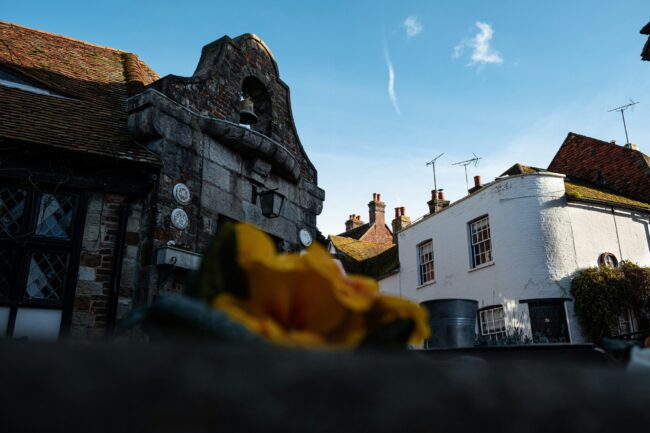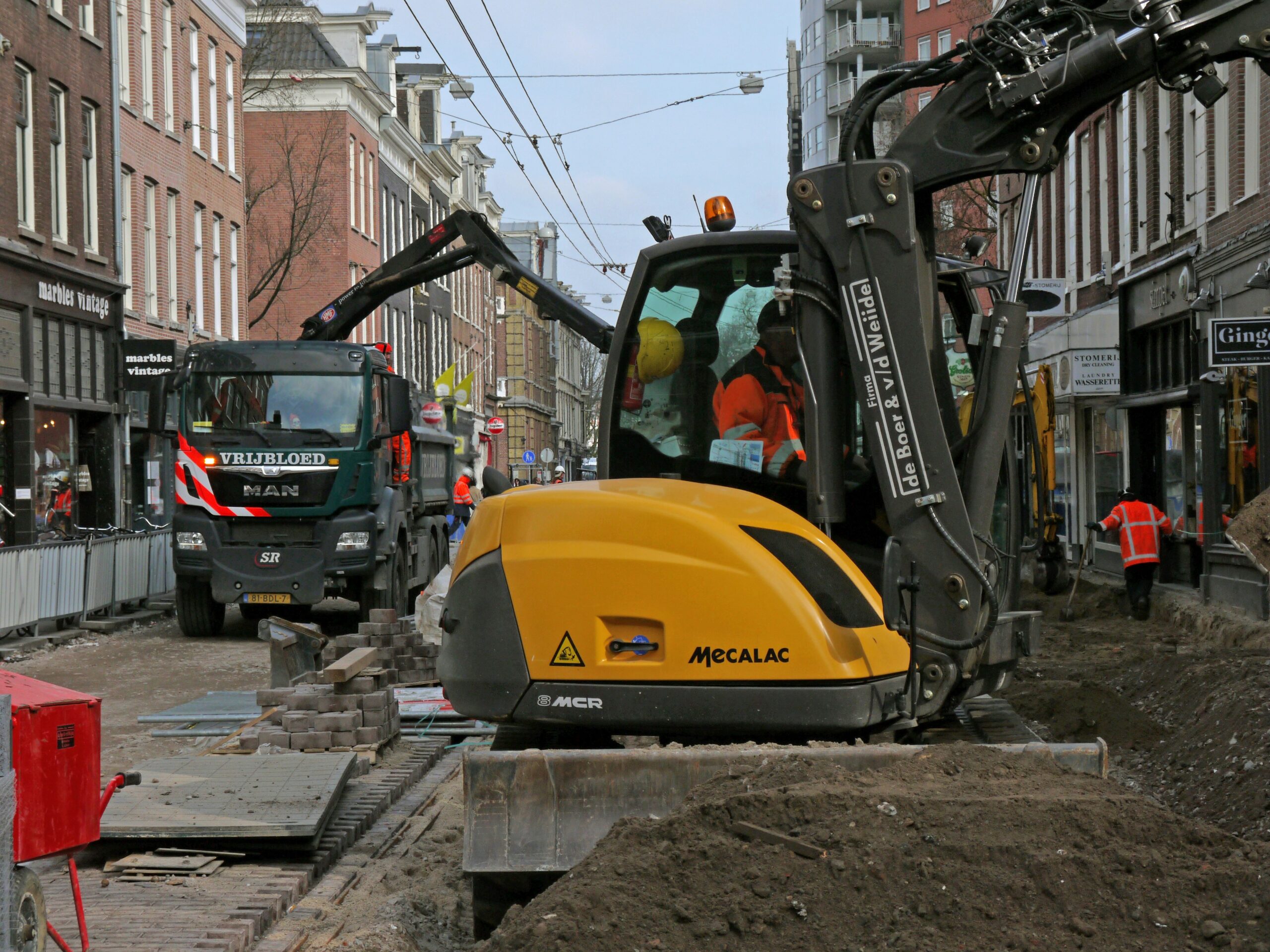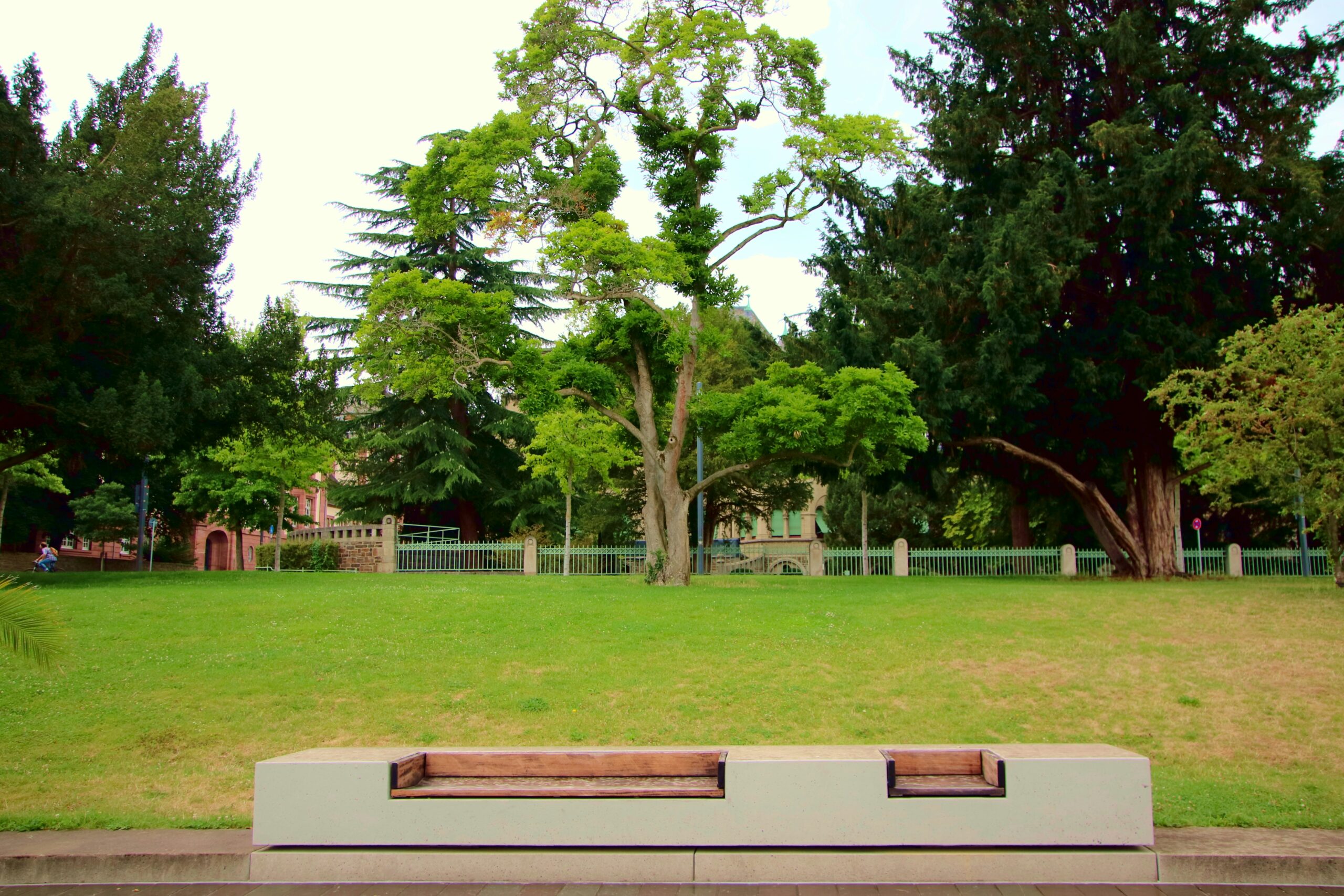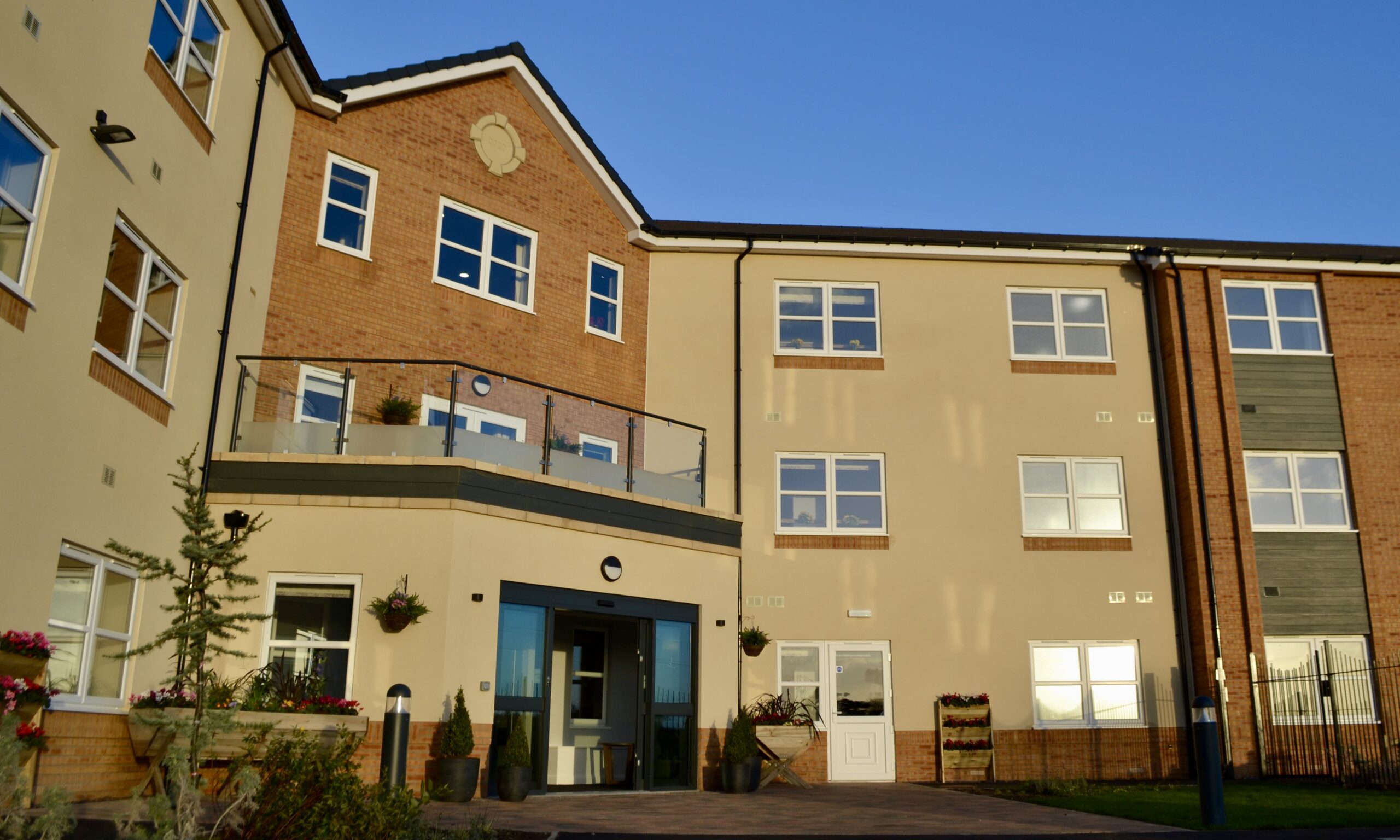Call me back
Please let us know how we can contact you and a suitable time to get in touch.

17 October 2024
Boston, Lincolnshire, is a historic market town and borough located in the East Midlands region of England. Situated on the banks of the River Witham, it is renowned for its rich history, architectural landmarks, and vibrant community life.
The town’s origins date back to the medieval period when it became a significant port and trading centre due to its strategic location and membership in the Hanseatic League. This historical prosperity is epitomised by St Botolph’s Church, known as “The Boston Stump,” which stands as one of the largest parish churches in England. Boston’s cultural significance is further enhanced by its connection to the Pilgrim Fathers, who were part of the early settlers of America.
Today, Boston balances its historical heritage with modern development, featuring a diverse economy driven by agriculture, food processing, and tourism. The town remains a dynamic community that celebrates its past while embracing future growth and opportunities.
Boston, Lincolnshire, has a rich and varied history that dates back to the 11th and 12th centuries. Initially, it grew into a notable town and port due to its strategic location on the River Witham, which provided access to the North Sea. This advantageous position allowed Boston to become a significant inland port by the 13th century, facilitating trade with mainland Europe.
In the 13th century, Boston became one of England’s most powerful ports and a member of the Hanseatic League, an influential commercial and defensive confederation of merchant guilds and market towns in Northwestern and Central Europe. This association bolstered Boston’s economic status, making it one of the wealthiest towns in England during that period. The town exported wool, lead, and salt while importing exotic goods such as wine, fur, and spices.
Despite its early prosperity, Boston’s economic fortunes began to wane by the end of the 15th century. The decline was precipitated by several factors: a decrease in wool exports, competition from other ports, and the silting of the River Witham, which hindered navigation. The advent of the railway in the 19th century further diminished Boston’s role as a major port.
Boston also played a notable role in religious history. In 1607, several members of the Pilgrim Fathers were imprisoned in Boston Guildhall before their eventual emigration to America. The town’s religious dissenters significantly contributed to the founding of Boston, Massachusetts.
In the mid-19th century, Boston experienced some revival with improvements in agricultural practices and infrastructure. The construction of docks in 1884 allowed it to continue as a working port for grain and timber exports. Despite its reduced prominence as a port compared to its medieval heyday, Boston remains an important agricultural market town today.
St Botolph’s Church, commonly known as the “Boston Stump,” is one of the most iconic landmarks in Boston, Lincolnshire. This remarkable church is renowned for its towering structure and historical significance, making it a focal point of both religious and cultural heritage in the region. The Boston Stump is celebrated for its towering height, standing at 272 feet, making it the tallest parish church tower in England without a spire. The tower was constructed in stages from 1425 to 1510 and features a distinctive octagonal lantern reminiscent of Ely Cathedral. Its Gothic architecture, with large windows that offer a sense of spaciousness and delicacy, is both imposing and elegant.
Construction of the current church began in 1309, replacing an earlier Norman structure. By 1390, the main body of the church was completed, although the tower was added later. The church’s construction reflects Boston’s prosperity during the medieval period when it was a major trading port and part of the Hanseatic League.
St Botolph’s Church has deep ties to both local and international history. In the early 17th century, under the leadership of Reverend John Cotton, the church became a centre for Puritanism. Cotton’s influence extended to America, where he helped found Boston, Massachusetts. This connection is commemorated within the church through stained glass windows depicting scenes from this era.
During World War II, the tower served as a navigational aid for British pilots due to its visibility across the flat Lincolnshire landscape. Interestingly, it is believed that German pilots also used it as a landmark, which may have contributed to its survival during bombing raids.
Inside St Botolph’s, visitors can find a wealth of historical artifacts and architectural features. The church houses an impressive collection of 62 late 14th-century misericords with intricate carvings. There is also a library containing 1,200 historic books dating from the 16th and 17th centuries. Notably, John Taverner, a famous composer and choirmaster at St Botolph’s, is buried beneath its tower.
Today, St Botolph’s continues to serve as a vibrant community hub. It offers various activities for visitors, including guided tours that explore its historical connections and architectural beauty. The church also hosts events and maintains an active role in local cultural life. The Boston Stump remains not only a testament to medieval architectural prowess but also a symbol of Boston’s enduring historical and cultural legacy.
The Pilgrim Fathers, also known as the Pilgrims, are a significant part of Boston, Lincolnshire’s history due to their early attempts to flee religious persecution in England. Their journey and eventual settlement in North America have left a lasting legacy that connects the town to the founding of the United States.
The Pilgrim Fathers originated as a group of Separatists, a faction of Puritans who believed that the Church of England was beyond reform and sought to separate from it entirely. This group included individuals from Nottinghamshire and Lincolnshire, who faced increasing persecution under the reign of King James I. In response to this religious oppression, they decided to seek refuge in the more tolerant environment of the Netherlands.
In 1607, a group of these Separatists attempted to flee England from Boston, Lincolnshire. They hired a ship to take them to Holland, where they hoped to practice their faith freely. However, the captain betrayed them by alerting local authorities. As a result, they were intercepted at Scotia Creek near Boston and arrested. Their possessions were confiscated, and they were imprisoned at Boston Guildhall.
Following their capture, the Separatists were held in Boston Guildhall before being sent back to their homes. Despite this setback, they remained undeterred. With the help of sympathisers, they eventually managed another escape attempt in 1608, this time successfully reaching Holland.
After several years in Holland, where they established a congregation in Leiden, the group decided to seek a new life in America. They negotiated with investors for passage and eventually set sail on the Mayflower in 1620 from Plymouth, England. This voyage led them to establish Plymouth Colony in present-day Massachusetts.
The Pilgrims’ story is celebrated both in Boston, Lincolnshire and across the Atlantic in Boston, Massachusetts. In Lincolnshire, a monument at Scotia Creek commemorates their thwarted escape attempt and honours their quest for religious freedom. This connection highlights Boston’s role as a starting point for one of history’s most famous journeys toward religious liberty and new beginnings.

In recent years, Boston, Lincolnshire has embarked on a transformative journey aimed at revitalising the town and enhancing its infrastructure. This development is fuelled by significant government funding and strategic planning to address local needs and aspirations.
Boston has received substantial financial support through various government initiatives. In 2023, the town was awarded £20 million as part of the Prime Minister’s “Long-Term Plan for Towns,” which aims to regenerate urban areas, boost the economy, and address social issues such as anti-social behaviour. This funding complements the earlier £21.9 million Town Deal, which is already delivering numerous projects across the town.
Several key projects are underway or have been completed as part of Boston’s regeneration efforts:
Boston is also seeing improvements in its infrastructure to support these developments:
The regeneration projects have been shaped by extensive public engagement processes, ensuring that they align with local priorities. The Boston Borough Council has emphasised that these initiatives will not only improve the town’s physical landscape but also foster a sense of pride among residents. By creating new job opportunities and enhancing quality of life, these developments aim to secure Boston’s future as a vibrant and prosperous community.
Overall, Boston’s modern development efforts reflect a comprehensive approach to urban regeneration, with significant investments poised to bring long-term benefits to the town and its inhabitants.
Boston, Lincolnshire, has experienced notable demographic changes over recent decades, reflecting broader social and economic trends. The town’s population dynamics are characterised by growth, diversity, and an evolving age structure.
According to the 2021 Census, the population of Boston town was approximately 45,339. However, the wider district of Boston had an estimated population of around 71,367 in 2023. This growth represents a significant increase from previous census figures, with the district’s population rising from 64,615 in 2011 to 70,815 in 2021. The growth rate of 9.1% between these census years was higher than both the East Midlands region and the national average for England during the same period.
Boston’s population is diverse in terms of age. As of 2021, the median age in Boston (town) remained stable at 42 years, slightly higher than the regional and national averages. The age structure shows a balanced distribution across different age groups:
The number of residents aged 50 to 64 years increased by about 11.1% from the previous census period.
The gender distribution in Boston is relatively balanced. In 2021, there were approximately 22,186 males and 23,207 females residing in the town. By 2023, the district had an estimated male population of 35,389 and a female population of 35,978.
Boston has become increasingly diverse over recent years. The town has one of the highest proportions of residents born outside the UK in Lincolnshire. In 2021, about 23.6% of Boston’s population was born outside the UK. This includes significant communities from Eastern Europe, with Lithuanians and Poles forming notable groups—5.6% of the population was born in Lithuania and 5.4% in Poland.
The religious landscape in Boston reflects its cultural diversity. In 2021:
Overall, Boston’s demographic profile illustrates a town that is growing and diversifying while maintaining its historical roots as a vibrant community within Lincolnshire.
Boston, Lincolnshire, has a diverse economy that is deeply rooted in agriculture, manufacturing, and increasingly, tourism. The town’s economic landscape has evolved over time, adapting to both local and global changes.

Agriculture remains a cornerstone of Boston’s economy. The town is situated in the Fens, an area renowned for its fertile soil and agricultural productivity. This region produces a significant portion of England’s fresh vegetables, potatoes, and sugar beet. Local farms like T H Clements and Lincolnshire Field Products are major employers and producers of brassicas and other crops. The agricultural sector in Lincolnshire contributes substantially to the UK economy, with Greater Lincolnshire responsible for 30% of the nation’s vegetables.
In addition to primary agriculture, Boston has a robust food processing industry. The Greater Lincolnshire region has seen a 30% increase in the economic output of food manufacture since 2014, outpacing national growth rates. This growth is supported by local initiatives and investments aimed at enhancing the food supply chain and logistics infrastructure.
Tourism has become an increasingly vital component of Boston’s economy. In 2022, tourism generated over £95 million in economic impact for the town, marking a record high since data collection began in 2011. The town attracted approximately 1.3 million visitors that year, with shopping and local hospitality being the most popular activities among tourists. This sector also supports over 1,000 jobs in Boston, contributing significantly to local employment.
Boston is benefiting from substantial government investment aimed at economic regeneration. The town has received £20 million from the Prime Minister’s “Long-Term Plan for Towns” to stimulate growth and tackle social issues. This funding complements the £21.9 million Town Deal and £14.8 million from the Levelling Up Fund, which are being used to enhance infrastructure, support local businesses, and improve public spaces.
Despite these positive developments, Boston faces challenges in employment. As of December 2023, the employment rate in Boston was 72.2%, slightly lower than the East Midlands average. Unemployment has risen slightly over the past year to 4.2%, reflecting broader regional trends. Efforts to address these challenges include initiatives to boost skills development and create new job opportunities through regeneration projects.
Overall, Boston’s economy is a blend of traditional agriculture and modern industry, supported by strategic investments aimed at fostering sustainable growth and improving quality of life for its residents.
Boston is governed by the Boston Borough Council. The council has been under various political controls since its establishment in 1974. Boston Borough Council plays a pivotal role in managing local affairs and implementing policies that affect the town’s development and community well-being. The council is responsible for a wide range of services, including planning, housing, waste management, and community safety.
The Boston Borough Council operates under a leader and cabinet model. The council is composed of elected councillors who represent various wards within the borough. These councillors are responsible for making decisions on local services and policies. The council leader, currently Councillor Anne Dorrian, oversees the implementation of council strategies and initiatives.
Boston Borough Council is part of the South & East Lincolnshire Councils Partnership, which includes East Lindsey District Council and South Holland District Council. This collaboration aims to enhance service delivery and efficiency across the region by sharing resources and expertise.
The council has been actively involved in several key initiatives aimed at improving the town’s infrastructure and quality of life for its residents:
The Boston Borough Council places a strong emphasis on public engagement. It regularly conducts consultations with residents and businesses to gather input on proposed projects and policies. For instance, the planning process for the Rosegarth Square project involved extensive public engagement, with participation from hundreds of local residents and businesses.
The council is responsible for setting its budget annually, which includes allocating resources to various services and initiatives. Recently, it approved a budget that extends support schemes for vulnerable residents, such as the Council Tax Support Scheme.
The governance structure also includes regular elections to ensure democratic representation. The last General Election was held on 4 July 2024, during which residents had the opportunity to vote for their local representatives.
Overall, Boston Borough Council plays a crucial role in shaping the town’s future through strategic planning, community engagement, and effective governance practices.

Boston, Lincolnshire, offers a comprehensive range of healthcare services to its residents, supported by both public and private institutions. The town is equipped with facilities that cater to a variety of medical needs, ensuring that the community has access to quality healthcare.
Pilgrim Hospital is a key healthcare provider in Boston, operated by the United Lincolnshire Hospitals NHS Trust. Located on Sibsey Road, it serves the communities of South and South East Lincolnshire. The hospital offers a wide array of medical specialties and is equipped with a 24-hour major Accident & Emergency (A&E) department. Pilgrim Hospital is known for its comprehensive care services, including surgery, maternity, and outpatient clinics. It has received various ratings and reviews from the Care Quality Commission (CQC), reflecting its commitment to maintaining high standards of patient care.
Boston West Hospital, part of Ramsay Health Care UK, provides private healthcare services and is located at the West Business Park on Sleaford Road. This day case hospital offers a range of treatments and services, from initial outpatient consultations and diagnostic scanning to surgical procedures and recovery. The hospital prides itself on its state-of-the-art medical technology and highly qualified staff, ensuring first-class patient care. It offers various payment options for treatments, including self-funding and insurance plans.
The Boston Urgent Treatment Centre is another vital healthcare facility in the town. It provides treatment for non-life-threatening conditions such as sprains, suspected broken limbs, minor burns, and eye problems. The centre encourages the use of the NHS 111 service to minimise waiting times and support social distancing measures. It offers both in-person visits and telehealth consultations to accommodate patient needs efficiently.
In addition to hospital care, Boston benefits from a range of community healthcare services provided by Lincolnshire Community Health Services NHS Trust. These services include GP out-of-hours care, pharmacy consultations, and specialist clinics that address various health concerns.
Overall, Boston’s healthcare infrastructure is designed to meet the diverse needs of its population through a combination of public NHS services and private healthcare options. The town’s medical facilities are committed to delivering high-quality care and ensuring that residents have access to essential health services close to home.

Boston, Lincolnshire, offers a diverse range of educational facilities that cater to the needs of its growing population. The town provides comprehensive education services from early years through to further education, ensuring that residents have access to quality learning opportunities at all stages of life.
Boston is home to several primary and secondary schools that serve the local community. These schools provide foundational education and are committed to fostering a supportive and inclusive learning environment. The town has a mix of state-funded and independent schools, offering various educational approaches and curricula.
For post-secondary education, Boston College is a prominent institution in the area. It offers a wide range of courses, including vocational training, apprenticeships, and adult education programs. Boston College is known for its strong links with local industries, providing students with practical skills and work experience opportunities that align with regional economic needs.
In addition to mainstream education, Boston also provides specialised educational services. These include support for students with special educational needs and disabilities (SEND), ensuring that all learners have access to tailored support and resources to help them succeed.
Early years education in Boston is supported by various nurseries and pre-schools that focus on child development and readiness for primary education. These facilities play a crucial role in providing early childhood education and care, laying the groundwork for lifelong learning.
Lincolnshire County Council oversees school transport services, ensuring that students have safe and reliable access to educational facilities. The council also provides additional support services such as school admissions guidance, attendance monitoring, and pupil support programs.
Educational institutions in Boston actively engage with the local community through events, partnerships, and outreach programs. This engagement helps foster a sense of community involvement in education and encourages collaboration between schools, parents, and local organisations.
Overall, Boston’s educational landscape is characterised by a commitment to providing diverse and inclusive learning opportunities that meet the needs of its residents. Through continuous investment in educational infrastructure and programs, the town seeks to equip its students with the skills and knowledge necessary for future success.
Transportation in Boston, Lincolnshire, is undergoing significant development to improve connectivity, reduce congestion, and support local economic growth. These efforts are part of broader initiatives to modernise infrastructure and enhance the quality of life for residents and businesses.
One of the major projects in Boston is the proposed Boston Distributor Road. This new route is intended to run west of the town, linking key roads such as the A16 to the north, A1121 Boardsides and A52 to the west, and reconnecting with the A16 to the south. The project aims to:
The estimated cost for the entire distributor road is around £100 million. While funding for the first phase has been secured by Chestnut Homes, additional funding sources are being sought for subsequent phases.
The A16 corridor between Boston and Spalding is a critical route for the agri-food industry. To enhance this corridor, several projects are being carried out under the A16 Levelling Up Fund improvement scheme. These include:
These improvements aim to reduce congestion, address connectivity issues, and provide better facilities for walking and cycling along the corridor.
Boston’s public transport system is also seeing enhancements. The railway station is set to undergo a £2.8 million upgrade as part of broader regeneration efforts. This includes plans for a new community café and start-up offices. These upgrades are designed to improve passenger experience and support local businesses.
Efforts are being made to improve pedestrian and cycling infrastructure within Boston. For example, enhancements have been made to Dolphin Lane, creating a more welcoming and accessible area that encourages footfall. Additionally, active mode improvements along Wyberton Low Road include cycle tracks and traffic calming measures to ensure safer routes for cyclists.
The ongoing transportation projects in Boston reflect a commitment to modernising infrastructure in line with future growth needs. By improving road networks, enhancing public transport facilities, and promoting sustainable travel options, these developments aim to support economic development while enhancing mobility for residents and visitors alike.
Boston, Lincolnshire, boasts a rich cultural heritage that is deeply intertwined with its history and international connections. The town’s cultural significance is reflected in its events, historical ties, and contributions to arts and education.
One of the most notable aspects of Boston’s cultural heritage is its historical connection to Boston, Massachusetts. This link dates back to 1620-30s when immigrants from Boston, Lincolnshire, helped establish the Massachusetts Bay Colony and named their new settlement after their hometown. This connection is celebrated through various cultural exchanges and commemorations that highlight the shared history between the two Bostons.
Boston hosts a variety of events that celebrate its rich history and vibrant community life. The Boston May Fair is a highlight of the town’s events calendar. Held annually since at least 1125, it transforms the town centre with rides and attractions, making it one of the top street fairs in the UK. Other notable events include the Boston Marathon, known for being one of the flattest in the UK, and the Boston Food Festival, which celebrates the town’s local and multicultural food heritage.
The Boston Guildhall is a key cultural landmark that offers insights into the town’s past. Built in the 1390s, it serves as a museum where visitors can learn about Boston’s role in international trade and its connection to the Pilgrim Fathers. The Guildhall was where some of these Pilgrims were tried before their eventual journey to America. This historical site also hosts exhibitions and educational programs that delve into Boston’s medieval history and its influence on American colonisation.
Boston supports a thriving arts scene with venues like Blackfriars Theatre and Arts Centre, which hosts performances ranging from theatre to music. Community events organised by local groups and supported by the Boston Borough Council celebrate the town’s diverse culture through activities such as art markets, music festivals, and heritage trails.
The town’s surrounding farmland contributes significantly to Boston’s vibrant food culture. Local produce is celebrated in markets and eateries throughout the town, offering fresh ingredients that highlight Lincolnshire’s agricultural heritage. Visitors can enjoy local delicacies such as Lincolnshire sausages and sample beers from Batemans Brewery, which has been brewing in the area for over 150 years.
These natural attractions not only enhance Boston’s appeal as a destination but also play a crucial role in maintaining its ecological balance and supporting local biodiversity. They provide valuable resources for education, recreation, and tourism, contributing to Boston’s identity as a town that values both its cultural heritage and natural environment.
Boston, Lincolnshire, is steeped in rich local traditions and folklore that contribute to its unique cultural identity. These elements are an integral part of the town’s heritage, reflecting the stories and customs that have been passed down through generations.
A significant initiative that highlights Boston’s cultural richness is the Lincolnshire Folk Tales Project. This project is dedicated to collecting, recording, and preserving the region’s folklore and traditions. It celebrates the oral storytelling heritage of Lincolnshire, including Boston, by showcasing various tales and legends that have been integral to local culture. These stories often involve mythical creatures, historical events, and local characters, providing insight into the beliefs and values of past communities.
Boston also observes traditional customs that have been part of its cultural landscape for centuries. Through initiatives like the Lincolnshire Folk Tales Project and ongoing community celebrations, Boston continues to honour its traditions and folklore, ensuring that these stories remain a vibrant part of its cultural heritage.
Boston, Lincolnshire, has been home to several notable personalities who have made significant contributions both locally and internationally, leaving a lasting impact on the town’s rich cultural heritage.
Among these figures is John Foxe (1517–1587), born in Boston, who became a renowned historian and martyrologist. His seminal work, Foxe’s Book of Martyrs, documented the persecution of Protestants and remains a significant historical text. Another prominent individual is Herbert Ingram (1811–1860), also born in Boston. Ingram was a pioneering journalist and the founder of The Illustrated London News, the world’s first illustrated newspaper. His efforts in Parliament were instrumental in bringing the railways to Boston and improving the town’s infrastructure by supplying fresh piped water.
Jean Ingelow (1820–1897), a celebrated poet and novelist born in Boston, gained popularity in both the UK and the United States during the 19th century. Her poetry, praised by contemporaries such as Alfred, Lord Tennyson, continues to be appreciated for its lyrical beauty and themes of nature and spirituality. Robert Webb, born in Boston in 1972, is another prominent figure. As a well-known comedian, actor, and writer, Webb is best recognised for his role in the acclaimed television series Peep Show. His connection to Boston remains a point of local pride as he continues to contribute to British entertainment.
Edmund Ingalls (ca. 1598–1648), though not as widely known today, was born in Skirbeck, part of the Boston area. He was one of the early settlers of Lynn, Massachusetts, playing a foundational role in establishing this new community in America. Ingalls’ journey from Boston to the New World exemplifies the town’s historical connections to early American colonisation efforts.
These individuals exemplify Boston’s rich historical and cultural legacy, contributing significantly to its development and reputation. Their achievements continue to be celebrated as part of Boston’s enduring heritage, highlighting its influence on literature, entertainment, and historical migration narratives.

Boston, Lincolnshire, is not only rich in history and culture but also boasts a variety of natural attractions that offer residents and visitors opportunities to engage with the environment and enjoy outdoor activities. These natural sites enhance the town’s appeal as a destination for nature enthusiasts and those seeking relaxation in scenic settings.
One of the jewels in Boston’s natural landscape is the RSPB Frampton Marsh, a vibrant estuary teeming with birdlife. It attracts bird watchers and wildlife enthusiasts from across the country, offering a chance to observe a wide variety of species in their natural habitat. The reserve features walking trails and viewing platforms, making it accessible for visitors to explore and appreciate the area’s biodiversity.
Freiston Shore, located nearby, complements Frampton Marsh by providing a peaceful retreat for nature lovers. This site offers additional walking routes and opportunities to enjoy the tranquillity of the coastal environment.
Boston is surrounded by numerous parks and green spaces that provide residents with ample opportunities for outdoor recreation. The town is known for its abundance of parks within close proximity, offering places to relax, walk, or engage in sports activities. These green spaces are integral to community life, promoting health and well-being.
For those who enjoy cycling and walking, the Water Railway offers a scenic path along the former railway line beside the River Witham. This route extends north towards Lincoln, providing a picturesque journey through Lincolnshire’s countryside. It is popular among locals and tourists alike for its beautiful views and peaceful setting.
Boston’s location on the River Witham allows for various water-based activities, including boat trips that explore both inland waterways and venture out into The Wash. These excursions offer unique perspectives of the town’s landscape and are a popular way to experience the area’s natural beauty.
Boston, Lincolnshire, is a town that seamlessly blends its rich historical heritage with modern-day development and community spirit. Known for its iconic landmarks like St Botolph’s Church and its historical ties to the Pilgrim Fathers, Boston continues to celebrate its past while actively investing in its future. The town’s economy is diverse, with strong foundations in agriculture, food processing, and tourism, supported by strategic infrastructure improvements and regeneration projects. As a vibrant community, Boston offers a wealth of cultural events, educational opportunities, and recreational activities that enhance the quality of life for residents and attract visitors. With its commitment to sustainable growth and community engagement, Boston is well-positioned to thrive as a dynamic and welcoming town in the heart of Lincolnshire.
For those considering a move to Boston, Avocet House Care Home offers an exceptional choice for quality care in a welcoming environment. Situated in the heart of Lincolnshire, Avocet House is a luxury care home that provides modern design and comfortable living for its residents. With 66 beds and a team selected for their kindness, compassion, and commitment, Avocet House ensures that every resident receives personalised and attentive care. The Tanglewood Group, known for its dedication to excellence since 1989, operates Avocet House and has earned national recognition through multiple care awards.

If you or your loved ones are looking for a supportive and nurturing community, consider visiting Avocet House to experience first-hand the outstanding care and facilities it offers. Contact us today to arrange a visit and see how we can make a positive difference in your life.
Please let us know how we can contact you and a suitable time to get in touch.